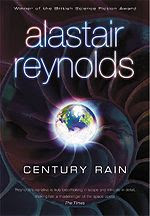
“Space opera plays fast and loose with science – or ignores it. Science fiction does not.” Ms. Delacroix also writes that space operas “feature bad science.”
And boy oh boy, did this ever remind me of those old Mounds/Almond Joy commercials:
"Sometimes you feel like a nut / Sometimes you don't / Almond Joy's got nuts / Mounds don't."
The above jingle, of course, advertised “Almond Joy and Mounds in tandem. In a play on words, the "feel like a nut" portion of the jingle was typically played over a clip of someone acting like a "nut," engaged in some funny-looking activity, such as riding on a horse backwards.”
Which made me go “Yes! Yes! That’s exactly how I feel about space opera!” Space opera that “plays fast and loose with science” makes me feel like a backwards riding equestrian nut—wild and happy and warm and fuzzy about a big ol’ ooey-gooey crunchy intergalactic adventure.
I’m an Almond Joy connoisseurs myself. Can’t get enough of the way the nutty taste of the almond blends with the super sweet coconut. I get cavities just thinking about it. And I’m unapologetic and will be forever and ever about my tastes in science fiction—especially space opera. Yeah, the science is often inexcusable, but so what? It’s fun. Often, it even gets away with delivering some pretty Deep Themes.
Sometimes, though, shoddy science fictional elements in a commercial (no pun intended!) space opera drives me nuts. Inject me with a dose of Mounds, stat! Really, if you think about it, much of the science in them is absolutely appalling. Many of them fall under the heading of science fantasy. There are plenty of times when I hope to learn more about real science in the context of an entertaining story with compelling characters. So I can understand why Ms. Delacroix points out that

“In a real sense, space operas are costume dramas with latex and lasers – they tell us more about ourselves right here and right now than about whatever might be out there in the galaxy in our future.”
And finally, even though I respectfully disagree with her assertion that space operas feature “bad science” across the board (Alastair Reynolds is an example of an author whose hard space operas features pretty stringent scientific concepts. I loved his CENTURY RAIN, but it would take me a couple of millennia to learn the science underlying the concepts in that book), I do understand the importance of making the distinction between fun, escapist science fiction and a thinking person’s science fiction. Both are valid—they just fill different needs.
Because, you know, sometimes you feel like a nut....
Joyfully yours,
Heather